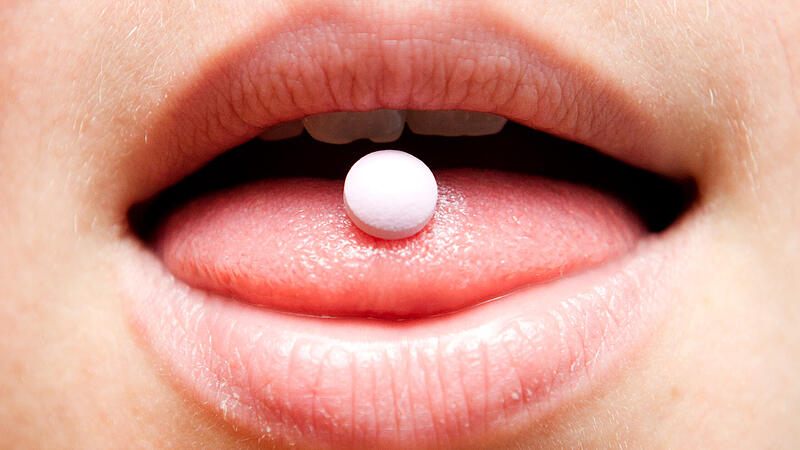“But that cannot be an excuse not to be vaccinated,” emphasized the Viennese infectiologist Florian Thalhammer (MedUni Vienna) at the 1st Austrian E-Vaccination Congress (online) on Saturday morning.
In the UK, the active ingredient molnupiravir was approved for the treatment of Covid-19 a few days ago. This agent will probably also be the first of its kind in the EU, said Thalhammer. But then, as a result, the virus-protease combination PF-07321332 / ritonavir, the second Covid-19 drug to be taken orally, can be expected. “Let’s hope that we can really see a light at the end of the tunnel,” said the expert. A closer analysis of the available scientific information on the two drugs with different modes of action shows, however, that many questions remain unanswered. According to Thalhammer, one thing is already clear: “The earlier you start therapy, the better.”
Molnupiravir works against SARS by introducing copying errors into the replication of the SARS-CoV-2 RNA during virus replication. “The result is an amino acid gibberish,” said the infectiologist. That prevents the development of new viruses. Such nucleoside analogues have been known for decades from HIV / AIDS therapy. Molnupiravir was originally developed as an influenza drug. The effect of the substance is dose-dependent. The medicine must be taken twice a day (400 milligrams each).
One problem: The results from the clinical study fluctuated significantly between an early interim evaluation and the analysis of the entire study population, as Thalhammer stated: In the interim evaluation, 28 of 385 treated subjects had to be admitted to hospital because of a severe course of the disease (7.3 percent) or died, 53 of 377 patients (14.1 percent) in the placebo group. This resulted in an initially published effectiveness of around 50 percent. But when the information from all admitted patients was examined, the protection rate shrank to only around 30 percent. Among those treated, 48 of 709 patients had come to the hospital or died (6.8 percent), in the placebo group 68 of 699 (9.7 percent).
Several factors internal to the study could have played a role, said Thalhammer. Vaccination against Covid-19 with a protection rate of 95 percent, on the other hand, is always the first choice.
PF-07321332 / ritonavir (paxlovid) developed by the US pharmaceutical company has a different effect. The first active substance is an inhibitor of a specific protease enzyme from SARS-CoV-2. Ritonavir is also a protease inhibitor. The latter substance has long been contained in HIV / AIDS drugs – also in combination with an HIV protease blocker – and only ensures that the other substance is available and effective in the body for a longer period of time.
In contrast to molnupiravir, no data has been presented scientifically on the Pfizer drug, either at a congress or in a specialist journal. “There is only one press release,” said the Viennese infectiologist.
A total of three effectiveness studies are ongoing. What Pfizer made public are data from the so-called EPIC HR investigation in an interim evaluation. The subjects admitted were people with early SARS-CoV-2 infection and a high risk of a severe course of the disease.
Treatment within three days of the onset of Covid-19 symptoms resulted in an 89 percent reduction in hospital admissions or deaths. Three out of 389 patients treated (0.8 percent) showed such a course, in contrast, 27 of 385 patients in a placebo group (seven percent). Over a period of 28 days, there was no death among those treated with the real drug, compared with ten (1.6 percent mortality) in the placebo group.
What must be observed in any case when using this medicinal product: Ritonavir in the protease inhibitor combination leads to a strong inhibition of a cytochrome enzyme (CYP3A4), which can also strongly influence the effect of other medicinal products. Therefore, a check must always be made for possible impending interactions with other drugs.
Aside from the direct effects of such drugs on the person being treated, shortening the duration of the virus shedding could also have an impact on the transmission rate to other people. In addition, prophylaxis could possibly shorten the necessary quarantine period for contact persons in the event of infection. In any case, SARS-CoV-2 was only detectable in five percent of cases in those treated with molnupiravir after three days, and in none of the patients after five days.
Source: Nachrichten




